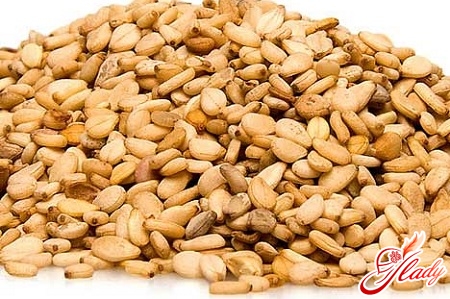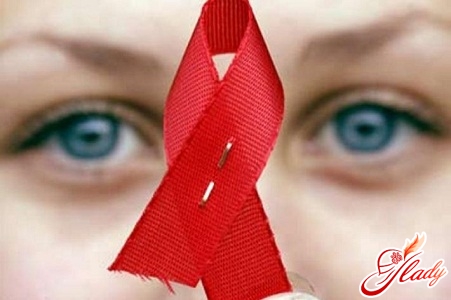 Are you suffering from muscle cramps?Do you have bad breath? Constant feeling of tiredness? All these troubles can be caused by lack of vitamins in the body. Each of us from time to time begins to experience some or other, albeit minor, but rather unpleasant and irritating symptoms of malaise. In the best case, we simply do not pay special attention to this, in the worst case, we start to panic, considering these symptoms as signs of some serious disease and not realizing that the malaise is caused only by lack of vitamins; both would be wrong. The worst thing is if we do not pay attention to the signs of vitamin deficiency, because lack of some vitamins can really provoke serious diseases.
Are you suffering from muscle cramps?Do you have bad breath? Constant feeling of tiredness? All these troubles can be caused by lack of vitamins in the body. Each of us from time to time begins to experience some or other, albeit minor, but rather unpleasant and irritating symptoms of malaise. In the best case, we simply do not pay special attention to this, in the worst case, we start to panic, considering these symptoms as signs of some serious disease and not realizing that the malaise is caused only by lack of vitamins; both would be wrong. The worst thing is if we do not pay attention to the signs of vitamin deficiency, because lack of some vitamins can really provoke serious diseases.
Magic molecules
Vitamins are organiccompounds that are necessary in small quantities to maintain life. These are small molecules (vitamin B12 is the largest, with a molecular weight of 1355) that play a huge role in maintaining our health. Vitamins participate in the regulation of metabolic processes, but do not provide energy and serve as building blocks. Most vitamins are not produced by our body, and a person gets them from food. An unbalanced diet and a passion for diets lead to a lack of vitamins. In general, a person needs the following vitamins (we are talking about the main ones):
- Vitamin A (retinol, fat-soluble). In the body comes in the form of beta-carotene, which we get with plant food, and enzymes in the stomach turn it into actually vitamin A.
- Vitamins of group B (soluble in water) are basic:
- Vitamin C (ascorbic acid, soluble in water)
- Vitamin D (calciferol, fat-soluble)
- Vitamin E (tocopherol, fat-soluble)
- Vitamin K (fat-soluble)
- Vitamin H (Biotin, water-soluble)
What causes a lack of vitamins (beriberi)
Did you know that Mozart's mysterious deathcould be explained by a lack of vitamin D in the great musician's body? This is the assumption that appeared on the pages of "Discovery News". Just imagine - if Mozart had just torn himself away from his musical instrument more often and gone outside, we could have had the opportunity to enjoy a much greater musical legacy of this genius! Whether this is true or not, no one will ever know; but in most cases, insufficient vitamin intake can indeed cause serious illnesses. Here, for example, is what a lack of essential vitamins can lead to:
- Lack of vitamin A: "night blindness", dry skin, degeneration of mucous membranes;
- Lack of vitamin B1: damage to the nervous system, heart failure, muscle pain, swelling, in children - growth retardation;
- Lack of vitamin B3: pellagra, rash, photodermatitis, diarrhea:
- Lack of vitamin B6: diarrhea, anemia, irritability and depression, dermatitis;
- Lack of vitamin C: scurvy, anemia, heart failure, do not heal for a long time:
- Lack of vitamin D: rickets;
- Lack of vitamin E: a violation of fat absorption, anemia, muscle atrophy;
- Lack of vitamin K: bad blood coagulability (which can lead to internal bleeding).
It has already been proven that the lack of dietary vitamins andminerals can increase the risk of developing cancer. And even a deficiency of just one vitamin can cause big trouble. We will give just a few examples of this.
Lack of vitamin C
Insufficient intake of vitamin C maycause various diseases, but one of the most terrible diseases was and remains scurvy. This disease was once one of the deterrents to the development of sea spaces, too often killing a large number of passengers and crew members during long voyages. At that time, there was no way to take perishable fruits and vegetables with you, with the help of which you could replenish the vitamin reserves in the body. Both travelers and soldiers, who lived on dry rations for a long time, suffered from scurvy. It became a serious problem from the beginning of the Age of Great Geographical Discoveries in the fifteenth century and continued to play a significant role until the beginning of the First World War in the twentieth century. What other diseases can vitamin C deficiency provoke? It can lead to anemia, capillary fragility, delayed wound healing, the appearance of subcutaneous hematomas. A lack of this vitamin can also reduce resistance to all infections, cause thyroid dysfunction and lead to premature aging. And if the body lacks vitamin C, then when it is necessary to take medications, the possible toxic effect of the drug increases. Oncological diseases significantly increase the body's need for vitamin C. Cancer patients, especially children with leukemia, show signs of bleeding gums, bruises and hematomas, hemorrhages, characteristic of a deficiency of this vitamin. Increased intake of vitamin C prevents the growth of cancer cells, and in some cases even leads to its regression. A lack of vitamin C can cause fragility of blood vessels, and this can lead to severe bleeding even with minor injuries. Even with a slight deficiency of vitamin C, blood appears in the urine of patients who have suffered various kidney diseases. For a person suffering from nephritis, daily use of large doses of vitamin C can sometimes quickly stop the appearance of "bloody" urine. The best sources of vitamin C are citrus fruits, kiwi, tomatoes, potatoes, cauliflower, green leafy vegetables, bell peppers.
Vitamin D deficiency: symptoms and possible consequences
Of all the vitamins that our body requires,body, vitamin D is one of the most important. Below we will provide symptoms that can determine that the body needs additional intake of this vitamin. These symptoms are widely known throughout the world, and if you do not treat vitamin D deficiency at an early stage, it can be very harmful to your body and cause serious diseases. About the "sun vitamin" Vitamin D is widely known as the "sun vitamin". The reason is that this vitamin is formed in the body as a result of direct exposure to sunlight. The main function of vitamin D is to regulate the absorption of phosphorus and calcium, their content in the blood, and the flow of these elements to teeth and bone tissue. Vitamin deficiency can cause disruption of cell growth in various organs, leads to softening of bone tissue and skeletal deformities, and in children causes rickets. Modern scientists have suggested that chronic vitamin D deficiency can cause cancer. General symptoms of vitamin D deficiency: There are a number of signs that you should pay attention to. If you notice any of these symptoms, you should urgently consult a doctor:
- Skin pigmentation: if pigmented spots persist on the skin, it is most likely caused by an acute shortage of vitamin D;
- Inflammatory bowel disease;
- Obesity;
- Weak bones, a tendency to injury: the main symptom of vitamin D deficiency;
- Other symptoms: low blood calcium, high blood pressure, depression, chronic fatigue, permanent pain in the bones, muscles or joints.
What other diseases can deficiency cause?Vitamin D? This includes a higher risk of cardiovascular disease (or the risk of a heart attack), breathing problems (such as asthma), especially in children, an increased risk of cancer (especially breast, ovarian and colon cancer), multiple sclerosis and psoriasis. Since a lack of the "sunshine vitamin" also affects the immune system, there is also a risk of suffering from diseases such as colds and flu. What causes vitamin D deficiency? There are many things that can cause a deficiency of this vitamin. Here are just a few:
- Minimum stay in the sun;
- Use too much sunscreen;
- Congenital dark skin tone;
- Insufficient vitamin D content in foods;
- Inability of the gastrointestinal tract to metabolize vitamin D;
- Failure in conversion in the kidneys of vitamin D into its active form;
- Age and hereditary propensity to vitamin deficiency.
It is very important to see a doctor in time so thatdetermine the causes of vitamin D deficiency in the body and eliminate its deficiency as soon as possible. Sources of vitamin D: sunlight (exposure of sunlight to the skin causes our body to produce vitamin D on its own), milk and dairy products, sardines, salmon, herring, tuna, fish oil.
Other Vitamins: Deficiency Symptoms and How to Eliminate It
- Vitamin A
Signs of deficiency: impaired vision in the dark. Sources of vitamin: liver, fish oil, egg yolks, green leafy vegetables, dairy products, yellow and orange fruits.
- Vitamin B1
Signs of deficiency:Tingling in the fingers and toes, difficulty maintaining balance, confusion, exhaustion, loss of appetite, decreased ability to concentrate, nervous system disorders. Sources of the vitamin: yeast, liver, egg yolk, cereals, meat, nuts, sprouted wheat grains.
- Vitamin B2
Signs of deficiency:itching and irritation of the eyes, inflammation of the mucous membranes (throat, mouth or nose), cracked corners of the lips. Sources of vitamin: milk, liver, yeast, cheese, fish, green leafy vegetables.
- Vitamin B6
Signs of deficiency: inflammatory skin diseases. Sources of vitamin: fish, bananas, chicken, pork, whole grain products, legumes.
- Vitamin B12
Signs of deficiency:increased fatigue, tingling and numbness of the extremities, anemia, memory problems. Source of vitamin: eggs, seafood (seaweed, squid, shrimp, etc.), poultry, liver, milk, cheese, soy, baker's yeast, spinach.
- Vitamin E
Signs of deficiency:muscle weakness and fertility problems. Source of vitamin: vegetable oil, nuts, soybeans, broccoli, spinach, Brussels sprouts, eggs, whole grain products.
- Folic acid
Signs of deficiency:increased fatigue, depressive states, weakness, irritability, forgetfulness, inflammatory diseases of the gums. Sources of vitamin: carrots, eggs, baker's yeast, liver, melon, apricots, beans, pumpkin, avocado, rye, green leafy vegetables.
How to compensate for nutritional errors
Of course, every person has their ownfood preferences. It may happen that you do not like some healthy products or, on the contrary, are fond of not very healthy food. How should you act in such a case so as not to harm your health?
- If you do not like fish, then more often eat egg yolk, mushrooms, drink milk and eat iodized salt so that there is no shortage of vitamin B and iodine.
- If you regularly drink alcoholic beverages,then eat more carrots, wholemeal and dairy products, liver, fish, poultry, broccoli and mushrooms to get enough vitamins A, B, B6, biotin, niacin, folic acid, pantothenic acid and magnesium.
- And if you drink lemonades and cola every day? Bread from wholemeal, pork and dairy products in this case will take care of that you get enough vitamins A, C, E, Bp B2 and B6.
- If you smoke, eat regularly carrots, fish, citrus, turkey, bananas and use vegetable oil so that there is no shortage of vitamins A, C, E, B, B, and B6.
- Constantly lose weight and eat very little? So that you do not have a deficiency of all the vitamins of group B and iron, you should eat daily foods from wholemeal and dairy products and, in addition, fish, poultry, liver, and portolac.
- If you take birth control pills, then in this case, the lack of vitamins B2, B6, E and folic acid can make up for chicken, salmon and groats.
Vitamin overdose and possible consequences
Healthy people have an excess of vitamins takenin the form of supplements, usually excreted from the body. But sometimes taking too many vitamins can actually be harmful to your health. For example, too much vitamin A can cause liver disease, bone damage, hair loss, and double vision. An overdose of vitamin B6 can cause problems with the nervous system, and too much vitamin C can cause nausea and diarrhea. Some scientists claim that a dose of vitamin C of 1000-5000 mg per day can lead to DNA damage. That is why you should not prescribe vitamin supplements for yourself; only a doctor should do this. A balanced and varied diet will provide all the necessary substances without additives. Just do not forget that for the normal functioning of the human body, a balanced intake of all vitamins (and minerals) on a regular basis is necessary. A balanced and healthy diet will guarantee your full and long life. We recommend reading:









